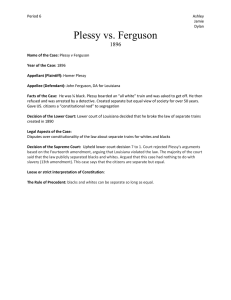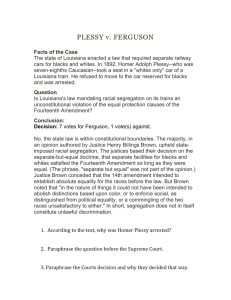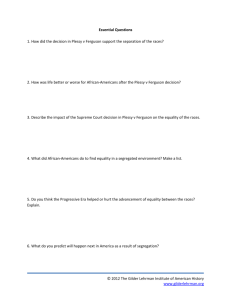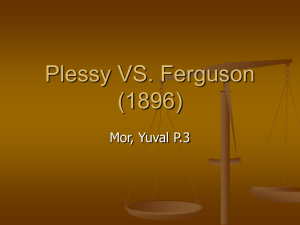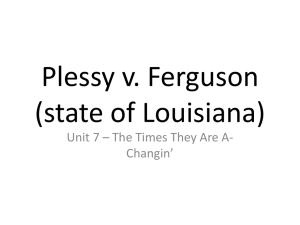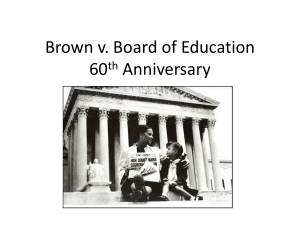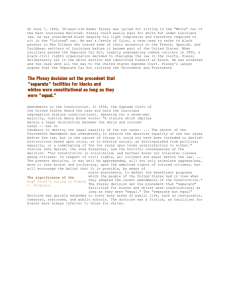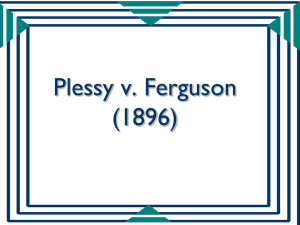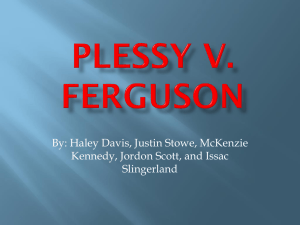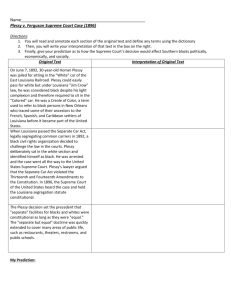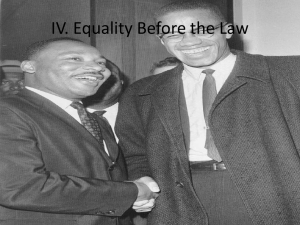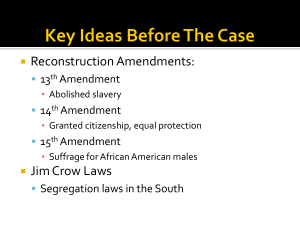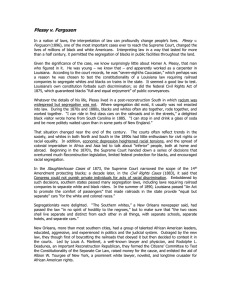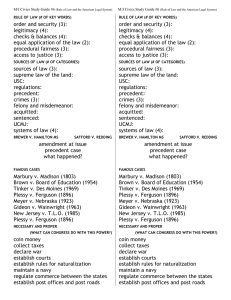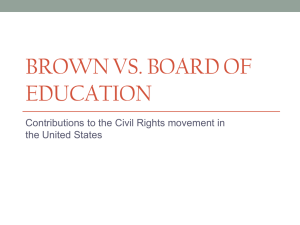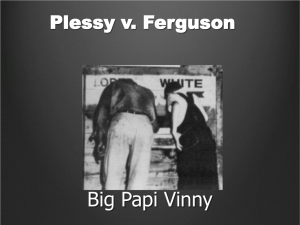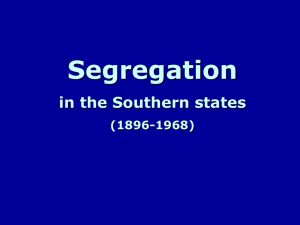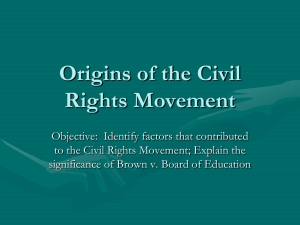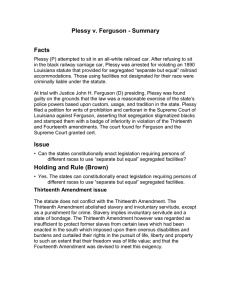Plessy v. Ferguson Court case of 1896
advertisement
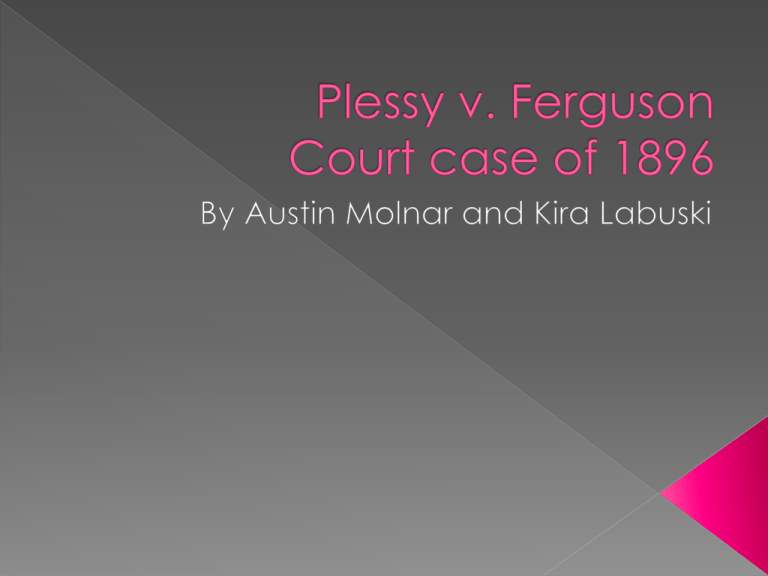
Was a landmark decision of the supreme court of the U.S.A. concerning racial segregation. In 1896 ruling the court established the policy of “separate but equal,” public facilities for blacks and whites. The decision formed the basis of widespread segregation in the south for over fifty years. The case began in 1892. Plessy had skin light enough to appear white. He was arrested for sitting in a car reserved for white people after telling the conductor that he was black. John H. Ferguson, a district court judge over ruled Plessy’s plead that the law was unconstitutional. Plessy then brought action against Ferguson. After Plessy brought action against Ferguson he argued that the law violated a clause of the 14th amendment to the U.S. that granted citizens equal protection of the laws, the supreme court said “The amendment did not speak to guarantee the social equality of all races.” The court up held the Louisiana law. Segregation of the races in the south continued though, facilities for blacks were always interior to those of the whites. Homer A. Plessy an African American shoemaker, challenged a Louisiana law that required separate but equal facilities for blacks and whites in railroad cars. The new state legislates enacted Jim Crow laws to legally segregate the races and impose second class citizenship upon African Americans. What year did this happen? 1896 How many years was the widespread segregation? 50 years What did the court up hold? Louisiana law Google.com Infohio.org Worldbook.com Bing.com Images.com Corbis.com
